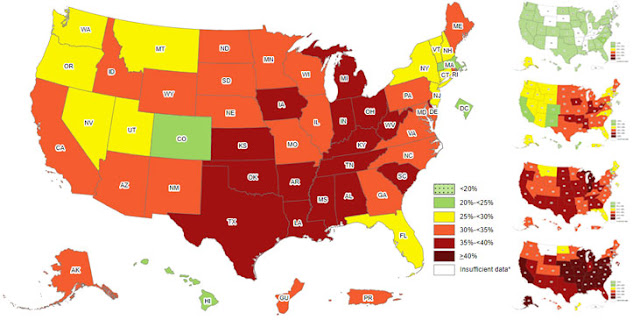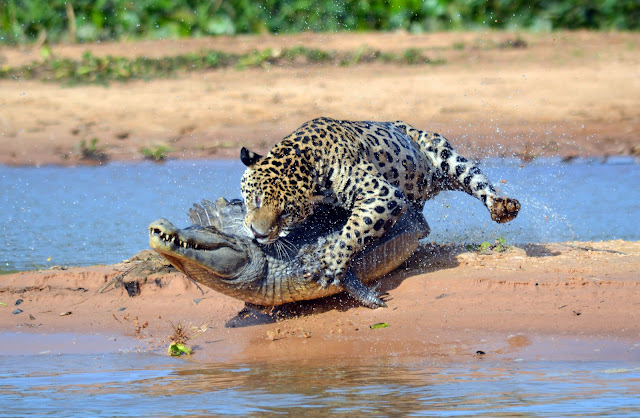Intuitive Eating - revolutionary, or another flash in the pan?
Who hasn't heard of or been warned about "yo-yo dieting?" Your weight goes up and down as does your dress or pant size, and your body is stressed because of it. And remember those friends telling you about their fabulous, no-fail diet plan, like the South Beach Diet, the Zone Diet, the Atkins Diet, the Paleo Diet, and the Macrobiotic Diet? Where are the champions of these diets today?
I've never been on a weight loss diet (knock on wood). I recognize that there are many, many people who have worked very hard to lose weight, sometimes resorting to medical or surgical options to get their weight down. I applaud them for the focus on their health. The US Centers for Disease Control and Prevention (CDC) has this to say about the health consequences of obesity:
People who are obese, compared to those with a normal or healthy weight, are at increased risk for many serious diseases and health conditions, including the following:
• All-causes of death (mortality)
• High blood pressure (Hypertension)
• High LDL cholesterol, low HDL cholesterol, or high levels of triglycerides (Dyslipidemia)
• Type 2 diabetes
• Coronary heart disease
• Stroke
• Gallbladder disease
• Osteoarthritis (a breakdown of cartilage and bone within a joint)
• Sleep apnea and breathing problems
• Some cancers (endometrial, breast, colon, kidney, gallbladder, and liver)
• Mental illness such as clinical depression, anxiety, and other mental disorders
• Body pain and difficulty with physical functioning
CDC also mentions "low quality of life." I don't like this phrasing, but who can argue that gallbladder disease, cancer, type 2 diabetes, and heart disease don't affect a person's quality of life?
 |
| Prevalence of self-reported obesity among U.S. adults by State and Territory, 2020. For adults, obesity is defined by the CDC as having a Body Mass Index of 30 or higher. |
Today, the book Intuitive Eating seems to be gaining traction, even though there is limited evidence indicating it works to reduce a person's weight over time. There seem to be more benefits in regards to helping people suffering from eating disorders. And, of course, when eating disorders are managed, a variety of health parameters tend to be improved. The focus seems to be on "normalizing" your weight.
• gain a healthy and peaceful relationship with food
• avoid the health risks of yo-yo dieting
• maintain long-term habits
• create more mindspace to think about life
Week 2 featured another registered dietitian. Her focus? "Make peace with food." Challenge fears and beliefs around food. Unconditional permission to eat lets you ask the questions:
• do I really like the taste of this food?
• do I like how this food feels in my body?
• would I choose to feel this way again after eating this meal or snack?
• would I choose to eat in this manner again?
Explore your food inventory. What are you currently forbidding to yourself?
Week 4 - This week our speaker had a BS in Health Education. The theme was honoring your feelings without using food.
Distinguish between emotional eating and eating for nourishment; eating for reasons other than hunger; relieving stress, boredom, or grief; triggers that drive toward using food to cope.
Are you getting enough sleep? Is your life in balance? Are you choosing good foods? (oops) Are you managing your stress?
I didn't know very much about intuitive eating. I think I have a better understanding of "mindful eating." So, I signed up for a multi-week course on it. These are my notes from the workshop.
Week one featured a Registered Dietitian with the introduction. She started off stating, "I'm interested in protecting your relationship with food." And she's a fan of Intuitive Eating.
What does the book say? "Humans are privileged to experience a dynamic interplay of instinct, emotion, and thought, which work together to orchestrate life and are mediated by the brain" (p. xiii). "Yes, make peace with food, and eat what pleases your palate. Yes, give yourself the freedom to eat unconditionally, and eat as much as you need to satisfy your body. But, eating whenever you feel like it, without regard to hunger and fullness, might not be a very satisfying experience and might also cause physical discomfort. Attunement with your body's satiety cues is an important part of this process" (p. xiv; italics added). As I begin this process, with the lectures and the readings, I'm going to pay close attention to this concept, "attunement with your body's satiety cues."
What is intuitive eating? It's personal, it honors health, it pays attention to the body's cues, it's a journey of discovery, and each person is the expert.
Why intuitively eat? The benefits are supposed to be the following:
Week one featured a Registered Dietitian with the introduction. She started off stating, "I'm interested in protecting your relationship with food." And she's a fan of Intuitive Eating.
What does the book say? "Humans are privileged to experience a dynamic interplay of instinct, emotion, and thought, which work together to orchestrate life and are mediated by the brain" (p. xiii). "Yes, make peace with food, and eat what pleases your palate. Yes, give yourself the freedom to eat unconditionally, and eat as much as you need to satisfy your body. But, eating whenever you feel like it, without regard to hunger and fullness, might not be a very satisfying experience and might also cause physical discomfort. Attunement with your body's satiety cues is an important part of this process" (p. xiv; italics added). As I begin this process, with the lectures and the readings, I'm going to pay close attention to this concept, "attunement with your body's satiety cues."
What is intuitive eating? It's personal, it honors health, it pays attention to the body's cues, it's a journey of discovery, and each person is the expert.
Why intuitively eat? The benefits are supposed to be the following:
• gain a healthy and peaceful relationship with food
• avoid the health risks of yo-yo dieting
• maintain long-term habits
• create more mindspace to think about life
I don't want to make a point-by-point analysis of the principles noted in the book. I agree with some, and disagree with others.
First, the program rejects the "diet mentality". Why? Dieting typically doesn't work in the long run. There is increased risk for gaining even more weight. Deprivation can trigger an inner rebellion. You get increased food cravings and reduced self-esteem.
Their suggestion? Get rid of dieting tools: scale, calories, and "good versus bad" food labels.
Next, honor your hunger and fullness. Find your fullness, and don't go past it. When past it, the food doesn't taste as good. So take mini-breaks when eating, encouraging slower and more mindful eating.
The dietitian said, "I don't think we're supposed to be perfect... it's overrated anyhow."
I mentioned that I had watched a film about the development of the polio vaccine, from the 1950s. In all the scenes, of people standing in lines to get the vaccine, I didn't see a single obese person. What's changed in 60 years? Did we use to eat intuitively? Or do we now have an abundance of engineered high calorie and sugar-fortified foods that didn't exist 60 years ago?
First, the program rejects the "diet mentality". Why? Dieting typically doesn't work in the long run. There is increased risk for gaining even more weight. Deprivation can trigger an inner rebellion. You get increased food cravings and reduced self-esteem.
Their suggestion? Get rid of dieting tools: scale, calories, and "good versus bad" food labels.
Next, honor your hunger and fullness. Find your fullness, and don't go past it. When past it, the food doesn't taste as good. So take mini-breaks when eating, encouraging slower and more mindful eating.
The dietitian said, "I don't think we're supposed to be perfect... it's overrated anyhow."
I mentioned that I had watched a film about the development of the polio vaccine, from the 1950s. In all the scenes, of people standing in lines to get the vaccine, I didn't see a single obese person. What's changed in 60 years? Did we use to eat intuitively? Or do we now have an abundance of engineered high calorie and sugar-fortified foods that didn't exist 60 years ago?
• do I really like the taste of this food?
• do I like how this food feels in my body?
• would I choose to feel this way again after eating this meal or snack?
• would I choose to eat in this manner again?
Explore your food inventory. What are you currently forbidding to yourself?
I mentioned vegetarianism, and the RD argued that it was "my choice". Chocolate, she said, would be something that a person could forbid themselves. Not eating meat is an ethical decision. When we have set up chocolate as forbidden, then we desire it, and when we come across it, we overindulge. The idea is that a forbidden food leads to novelty and excitement.
The world is full of people at peace with food who forbid themselves certain food items. There are pork product taboos. Vegans and vegetarians forbid certain foods. Some people avoid sugar drinks, while others avoid artificially sweetened drinks. People can avoid products with caffeine, while others avoid farmed fish. There are billions of people who forbid themselves certain foods. It IS done, very successfully. I choose to avoid non-ethically sourced coffee, or chocolate. I choose to avoid beef, pork, and chicken. I don't overindulge when I come across beef.
We are also to challenge the "Food Police," by learning how to silence the instigator of the war with food. The RD related a story about people looking over her grocery cart, and hiding their own, when she went shopping.
Ah-ha! Develop the fall guy. It's not my fault... it's the fault of the FOOD POLICE! The devil made me do it!
Who are you supposed to believe?
The world is full of people at peace with food who forbid themselves certain food items. There are pork product taboos. Vegans and vegetarians forbid certain foods. Some people avoid sugar drinks, while others avoid artificially sweetened drinks. People can avoid products with caffeine, while others avoid farmed fish. There are billions of people who forbid themselves certain foods. It IS done, very successfully. I choose to avoid non-ethically sourced coffee, or chocolate. I choose to avoid beef, pork, and chicken. I don't overindulge when I come across beef.
We are also to challenge the "Food Police," by learning how to silence the instigator of the war with food. The RD related a story about people looking over her grocery cart, and hiding their own, when she went shopping.
Ah-ha! Develop the fall guy. It's not my fault... it's the fault of the FOOD POLICE! The devil made me do it!
I was told that children eat fully intuitively. But the childhood obesity rate... is terrible.
"You have to give yourself complete permission to eat whatever you want, whenever you want." I can't agree with this. You have to recognize that you are also being manipulated to eat things, in presentation, in marketing, in food engineering. Your food choices are not your own. Your ancestors would not even recognize some of the food we eat today as...food.
Week 3, the focus was on "respect your fullness," and "discover the satisfaction factor." The speaker had a degree in nutrition and psychology, and was a personal trainer, yoga instructor, and "navigator of intuitive eating."
We were asked how we were practicing honoring our hunger this past week. Were there any instances where we challenged the food police?
I wondered if I should challenge the "health police," avoiding seatbelts, bike helmets, and not trying for 10000 steps a day. The glare came.
For the first time, some actual nutrition information came into the nix.
• The satiety factor: protein helps to increase satiety levels: meats, beans, fish, poultry, yogurt, nuts
• Fats: slow down rate of digestion; prolongs fullness - nuts, oils, butter, avocado, full-fat dairy products, salad dressings, nut butters.
• Carbs: add bulk and help keep a minimal blood sugar level
• Fiber: indigestible carbs that slow absorption
The speaker mentioned something like "calories don't matter that much." I said, "wait, what is the consequence of eating 5-10% more calories than your body needs for 20 years?" Glaring. My answer? See the obesity map at the top.
Mindful eating exercise. Open a Dove dark chocolate. Look at it. How would you describe it to someone who has never seen it before. Now, bring to your nose and smell. Is the scent subtle or strong? Now touch. Notice and feel the texture. Sound. Bite. Savor. Taste. No right or wrong way to taste. Chew, enjoy, cherish, and swallow.
"You have to give yourself complete permission to eat whatever you want, whenever you want." I can't agree with this. You have to recognize that you are also being manipulated to eat things, in presentation, in marketing, in food engineering. Your food choices are not your own. Your ancestors would not even recognize some of the food we eat today as...food.
Week 3, the focus was on "respect your fullness," and "discover the satisfaction factor." The speaker had a degree in nutrition and psychology, and was a personal trainer, yoga instructor, and "navigator of intuitive eating."
We were asked how we were practicing honoring our hunger this past week. Were there any instances where we challenged the food police?
I wondered if I should challenge the "health police," avoiding seatbelts, bike helmets, and not trying for 10000 steps a day. The glare came.
• The satiety factor: protein helps to increase satiety levels: meats, beans, fish, poultry, yogurt, nuts
• Fats: slow down rate of digestion; prolongs fullness - nuts, oils, butter, avocado, full-fat dairy products, salad dressings, nut butters.
• Carbs: add bulk and help keep a minimal blood sugar level
• Fiber: indigestible carbs that slow absorption
The speaker mentioned something like "calories don't matter that much." I said, "wait, what is the consequence of eating 5-10% more calories than your body needs for 20 years?" Glaring. My answer? See the obesity map at the top.
Mindful eating exercise. Open a Dove dark chocolate. Look at it. How would you describe it to someone who has never seen it before. Now, bring to your nose and smell. Is the scent subtle or strong? Now touch. Notice and feel the texture. Sound. Bite. Savor. Taste. No right or wrong way to taste. Chew, enjoy, cherish, and swallow.
Week 4 - This week our speaker had a BS in Health Education. The theme was honoring your feelings without using food.
Distinguish between emotional eating and eating for nourishment; eating for reasons other than hunger; relieving stress, boredom, or grief; triggers that drive toward using food to cope.
Are you getting enough sleep? Is your life in balance? Are you choosing good foods? (oops) Are you managing your stress?
Week 5 - Our last speaker was researcher and instructor focusing on weight bias, weight-related teasing (bullying), and intuitive exercise.
Respect your body (body image). Getting rid of the scale - the point is not to be concerned about your weight, it's not to use the scale as your reward. Stay away from numbers to define yourself. Of course, I use numbers as targets in my workouts at the gym. I swim 100 pool lengths. I run for 5 miles. All numbers.
Instead, we should pay attention to how we feel. "I'm not saying eat whatever you want, and exercise whenever you want." Then what has everyone been saying?
Exercise: feel the difference
• to discover physical activities that you enjoy
• to explore the qualities of mindful exercise
• to identify personal benefits
• to discover how to break through exercise barriers
• to learn how to increase activity by sitting less
The speaker said that 60% of college students use exercise to help control their weight.
Is the future going to be intuitive exercising?
Again, these are my notes from the workshop. What I call REAL information about diet and exercise came at the end of the workshop. The number of people attending the workshop decreased over time, until there were only 3 in the audience at the end. That means most participants only heard the "eat what feels good" section.
•••••
Overall, I'm not a fan of intuitive eating as a general health promoting system. Calories count. I'm a believer in Michael Palin's 7 words: "Eat food. Not too much. Mostly plants." Is this intuitive? Cancer and heart disease have a strong dietary component.
But to be fair, here are two articles that seem to champion intuitive eating (although it seems these are really focused on preventing or treating eating disorders). There are many more, but these were of interest to me, and, hey, I'm the one writing!
 |
| https://www.theatlantic.com/health/archive/2019/02/intuitive-eating/583357/ |
 |
| https://www.outsideonline.com/health/running/training-advice/running-101/the-truth-about-intuitive-eating-for-runners/ |






Comments
Post a Comment